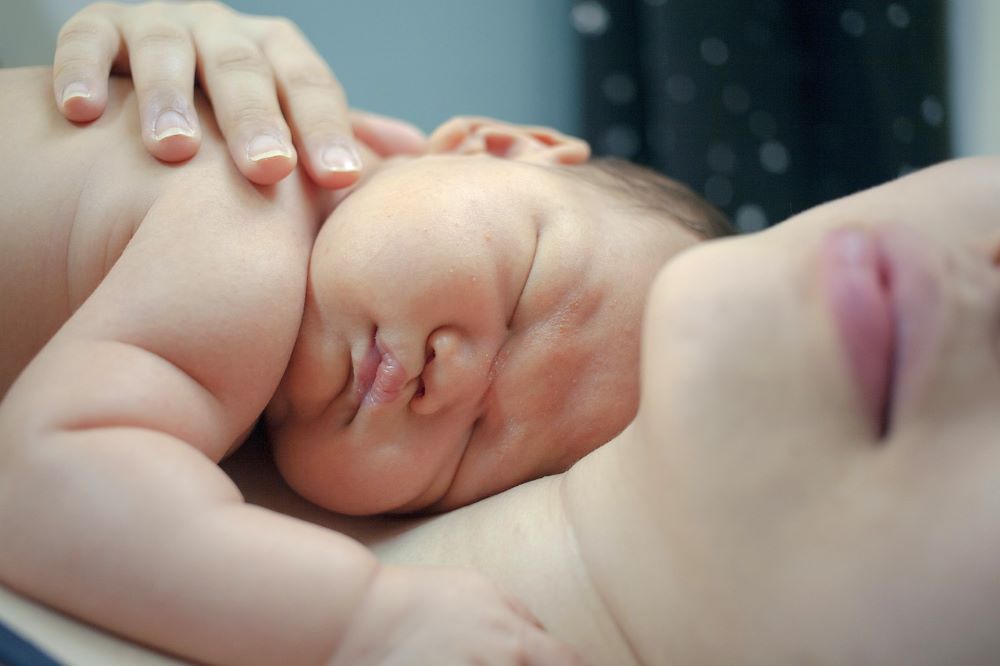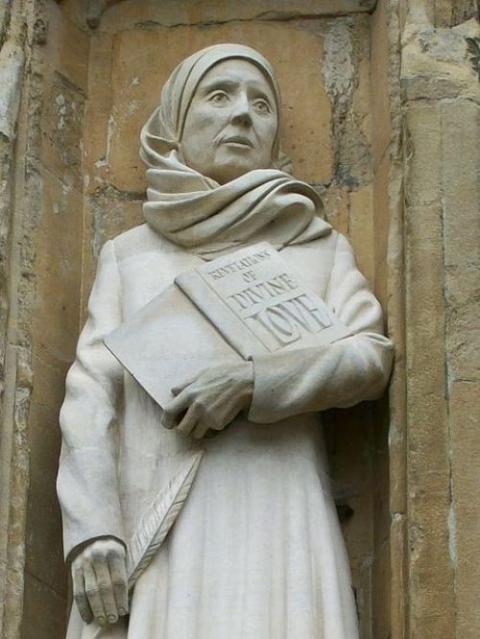
(Pixabay/angel4leon)
I am on retreat in a beautiful and sacred place, Prairiewoods Franciscan Spirituality Center in Hiawatha, Iowa. My weekend has been filled with the song of birds, the sweet smell of prairie grasses and the cool shade of a magnificent grandmother oak. Amidst wild and wonderful creation, I spend time with my divine Mother, our Creator God whose love for us so beautifully models the love of a parent for their child.
I am Catholic, and I pray to God as Father as Jesus taught. But more and more, I've found myself needing an additional image of God. I relate to God as Mother not so much because of my role as a mother to two young children, but because in parenting I have found just how much I still need to be mothered. Nowhere has this come through more pointedly than in moments of deep pain unique to women: miscarriage, pregnancy complications, birth trauma. The small box I had put God in could not seem to hold this grief, and I found myself unable to pray to the Father. In these painful times, I experienced God's presence primarily through the women who cared for and consoled me. In their love and compassion, I saw the tender maternal face of God.
Imagining God mothering me offers a sanctity to the tasks of parenthood I repeat each day. It reminds me that I, as a woman, bear the image and likeness of God. It is not in spite of my female body and soul that I am like God, but because of it. And I strongly believe that women need images of God that reflect our experience of being in the world, for as feminist theologian Elizabeth Johnson notes, "the symbol of God functions." It impacts not just how a woman views her own dignity but how her church and society view her dignity — and determine what is sacred.
'Hold me, Mama' has become my prayer to God.
Of course, feminine images of God are not limited to the maternal. Holy Wisdom, midwife, fierce protector of the poor, prophetess — all these and more "characterize divine love" and "carry back to women the stamp of divine likeness," as Elizabeth Johnson says in her book Quest for the Living God. These feminine images both nurture and empower women.
Hosea 11:3-4 has become the pulse of my retreat with this feminine face of God: "Yet it was I who taught Ephraim to walk, I took them up in my arms; but they did not know that I healed them. I led them with cords of human kindness, with bands of love. I was to them like those who lift infants to their cheeks. I bent down to them and fed them." For me these few lines capture the whole of what it means to say that God mothers us. (See also: Matthew 23:37; Deuteronomy 32:11-12, 18; Job 38:8; Isaiah 42:14, 49:15, 66:11-12; and Psalms 22:9-10 for additional maternal images of God.)
God Who Takes Us Up in Her Arms and Heals Us
How many times a day do I hold my 2-year-old son? I couldn't say. Again and again, Theo comes to me, arms above his head, begging, "Hold me, Mama!" Always the same phrase, but varying degrees of intensity and urgency. Sometimes it's expected, little feet running over after a bump or a squabble with his older sister, Lucy. Whatever the reason, I can't say no to that curly-topped boy with his round little face, and I put down whatever I'm holding to take him in my arms. The moment of closeness is healing for both of us, resetting whatever patience I may have lost so far in the day and offering him the safety of my body, a secure attachment. Nothing is more important to God than meeting our present need for closeness, ready to embrace us at every turn. "Hold me, Mama" has become my prayer to God.

St. Teresa of Avila (Wikimedia Commons/Creative Commons/Nheyob)
God Who Lifts Us to Her Cheek
While I'm on retreat, my husband FaceTimes me before the kids go to bed. Sure, I'm in silence, but I can't resist seeing my little sweeties. When I answer the call, my son immediately says, "Hold me, Mama!" When he realizes I can't, he brushes his cheek against the phone and kisses the image of my face. Over and over, I watch his nose get closer and closer until his face is just a sweet shade of pink with a little strawberry blonde hair popping up occasionally, his little lips on the phone, pressing his cheek to my face in a hug.
As I walk back to my room, the realization gently comes: God loves me this way. God is not content with one kiss, or one moment of cheeks pressed together. God longs to embrace me over and over. It is never enough, and we can never be close enough. God lifts us to her cheek again and again, whenever we allow ourselves to receive her constant outpouring of love.
God Who Bends Down and Feeds Us
The last phrase in Hosea is perhaps my favorite. It calls to mind the Eucharist, Jesus' humble way of "bending down" and feeding us with his very body. "This is my body, given up for you." My retreat culminates with Mass, the nourishment of Christ, my "sending forth" gift to take back to daily life.
Mystics like Julian of Norwich and St. Teresa of Avila connected the nourishment of God to breastfeeding. In her famous work The Interior Castle, Teresa of Avila offers this astounding image: "For from those divine breasts where it seems God is always sustaining the soul there flows streams of milk bringing comfort to all the people."
Julian of Norwich says in Showings, "The mother may give her child to suck her milk, but our precious mother Jesus, he may feed us with himself, and does so most courteously and most tenderly with the blessed sacrament that is the precious food of true life." I love that Julian has no problem using feminine and masculine terms for Jesus in the same sentence. God is truly a mystery, beyond our understanding, and our metaphors for God can never capture exactly who God is.
Advertisement
But this metaphor is rich, for breast milk is not only nourishing but also healing. I nursed my children for a combined 32 months, which means I spent about 5,000 hours with a baby at the breast. I know this feeling of bending down and feeding. My shoulders can feel it still, the sort of hunched position I sank into in the rocking chair each time. Aside from the precious bond with my babies, I valued my breast milk for its healing of rashes and dry skin, the way it adapted to their needs at each stage, the actual makeup of it changing when they were ill and as they grew. It was and is miraculous to me, how the milk was always exactly what they needed.
God's nourishment, the divine milk of the Gospel and the Eucharist, holds exactly what we need. The healing God offers through God's own gift of self — the living Word, the bread and wine — is specific to our needs. It is both food to meet our deepest aches and balm to heal our deepest wounds.
God offers the incredible power of a Mother to feed, heal, soothe, comfort and instruct her children in wisdom and strength. Will we let her?






